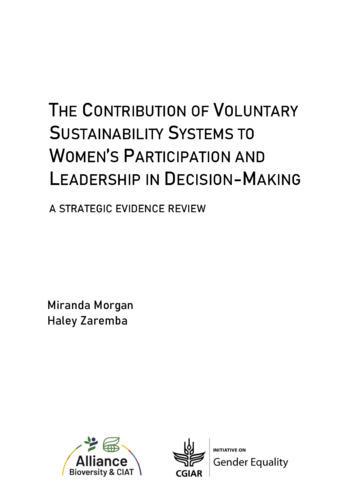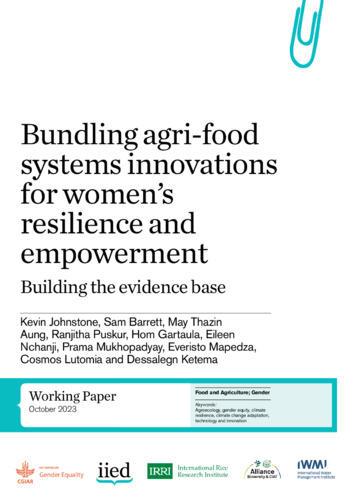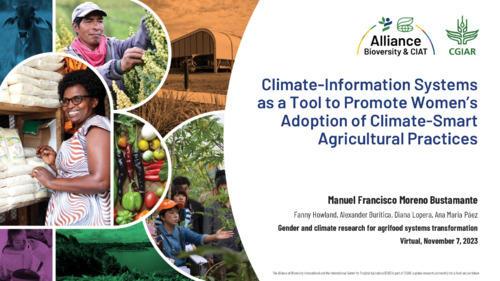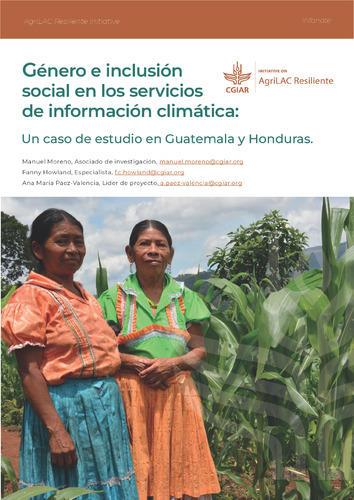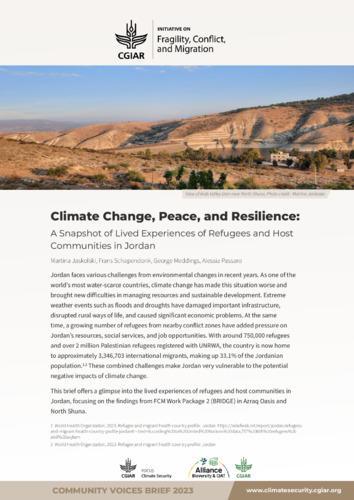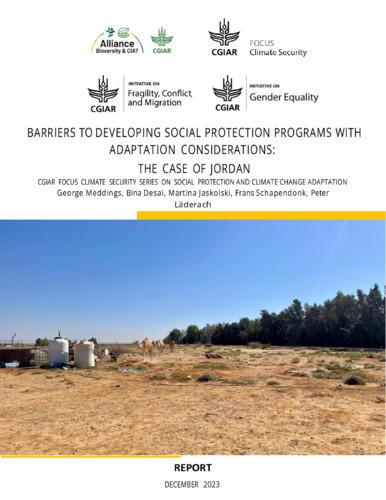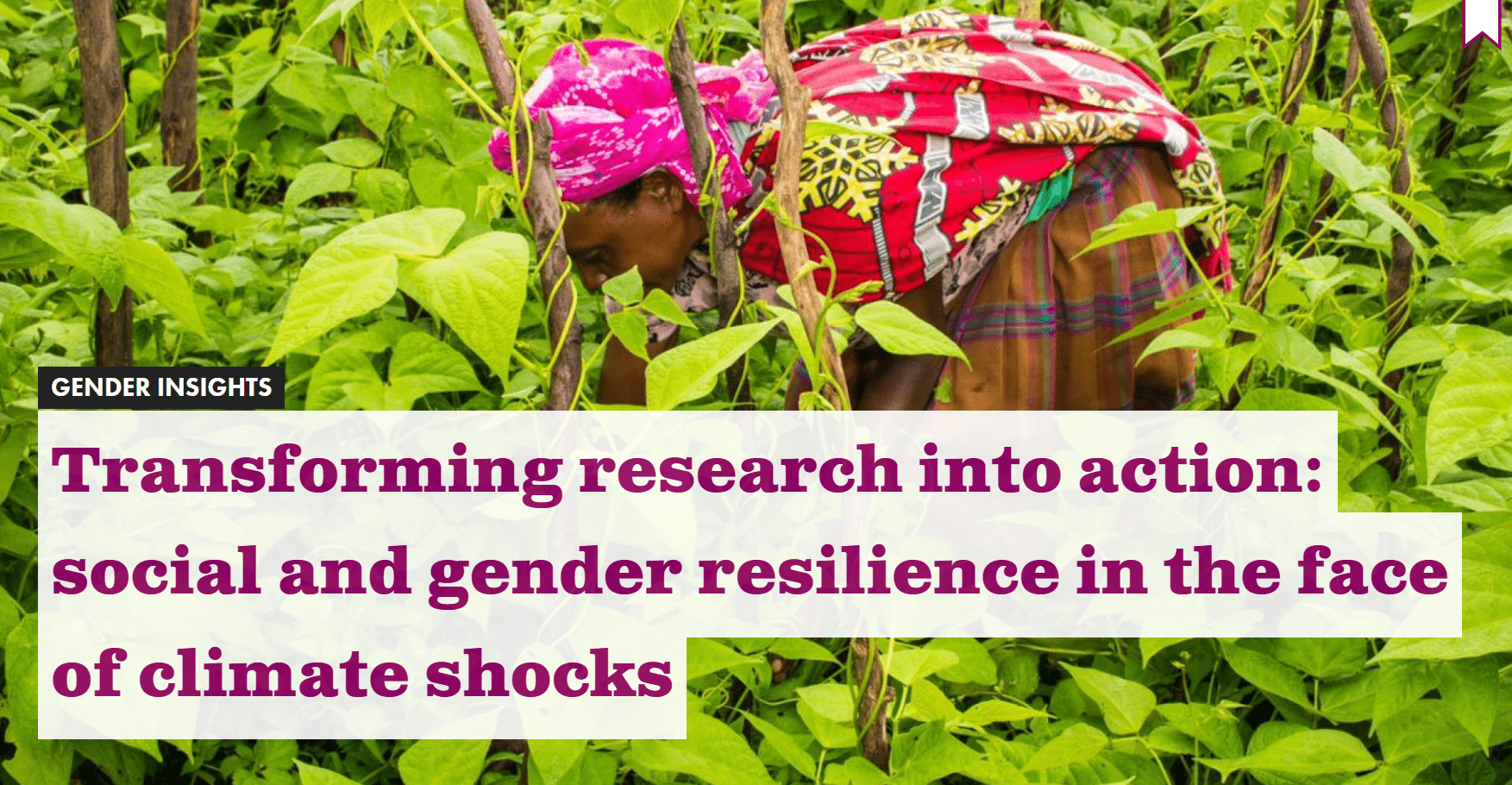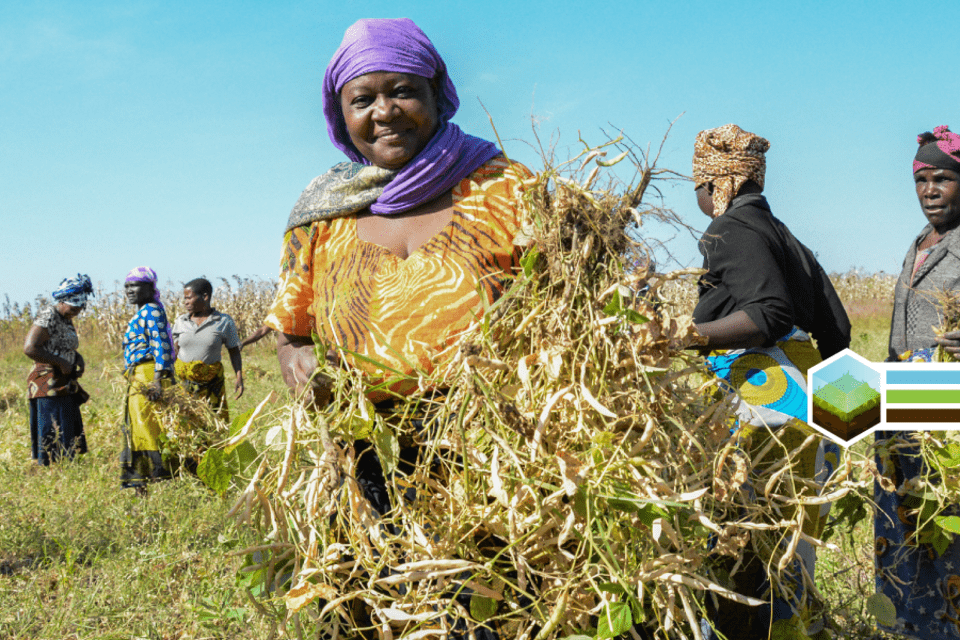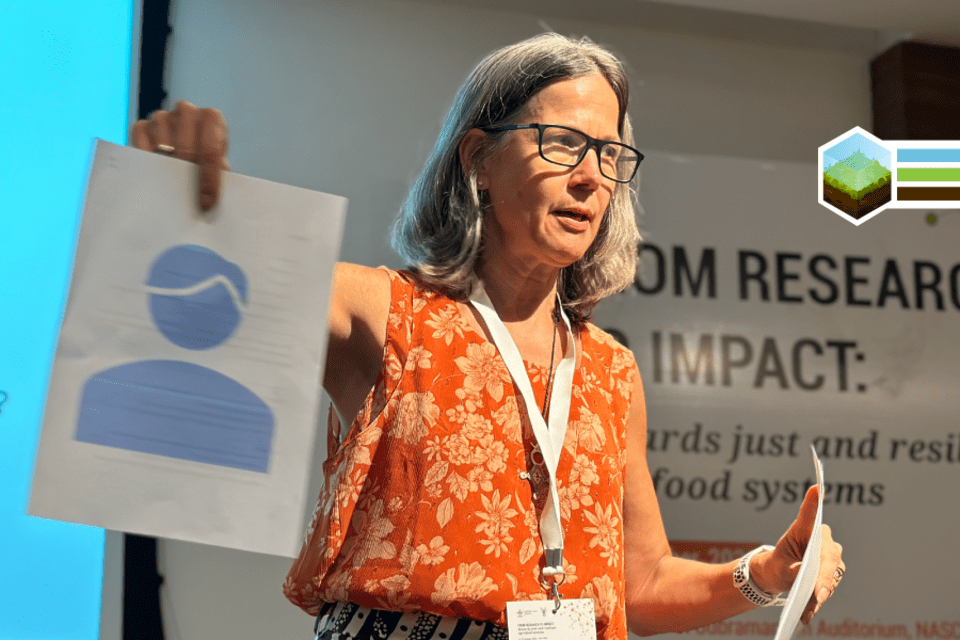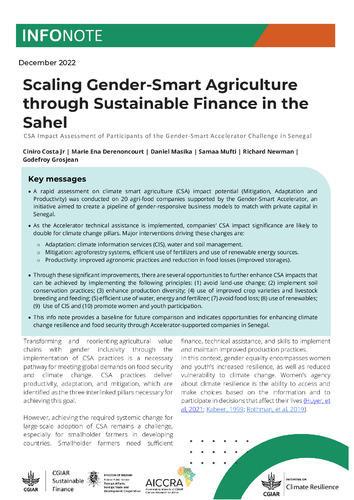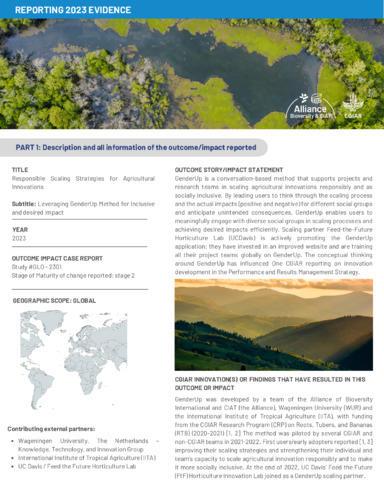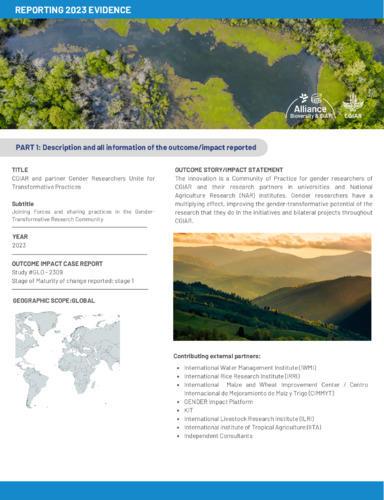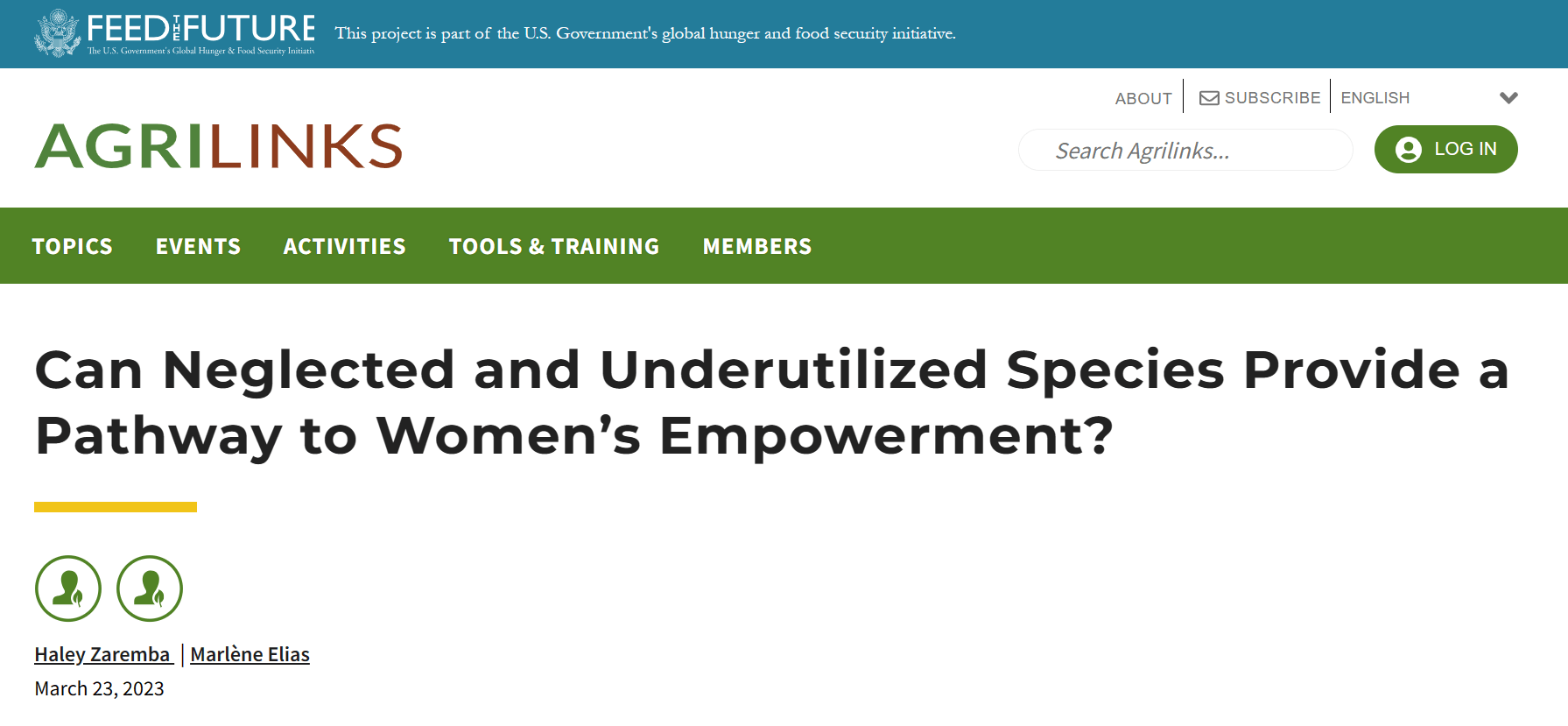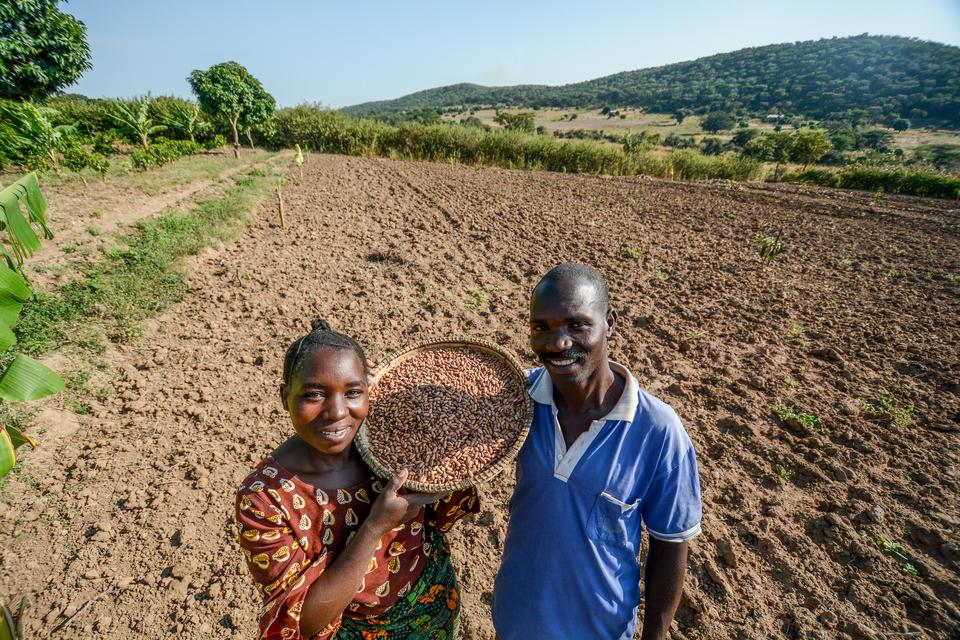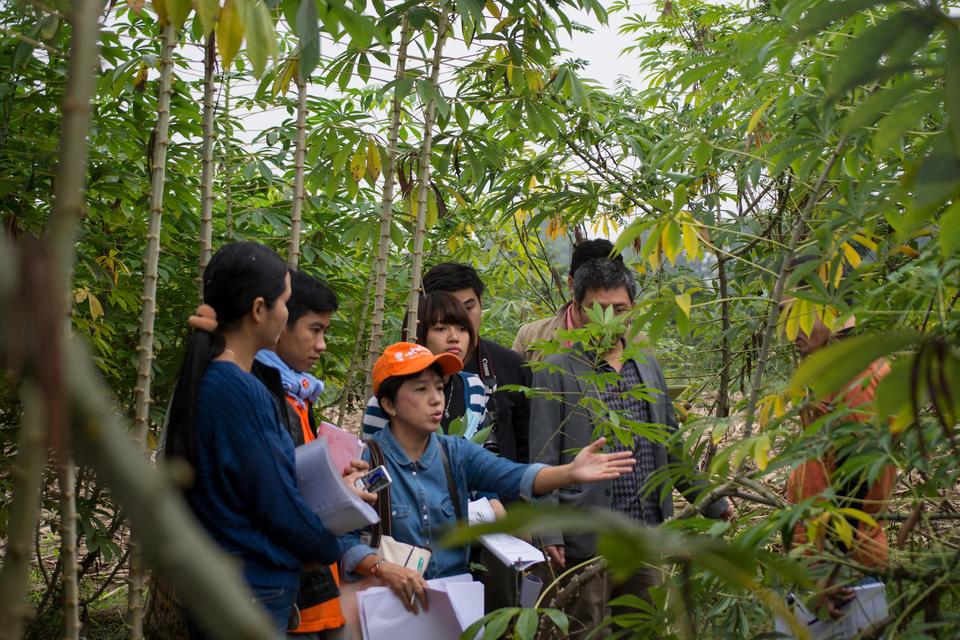2023 Annual report Gender and Inclusion
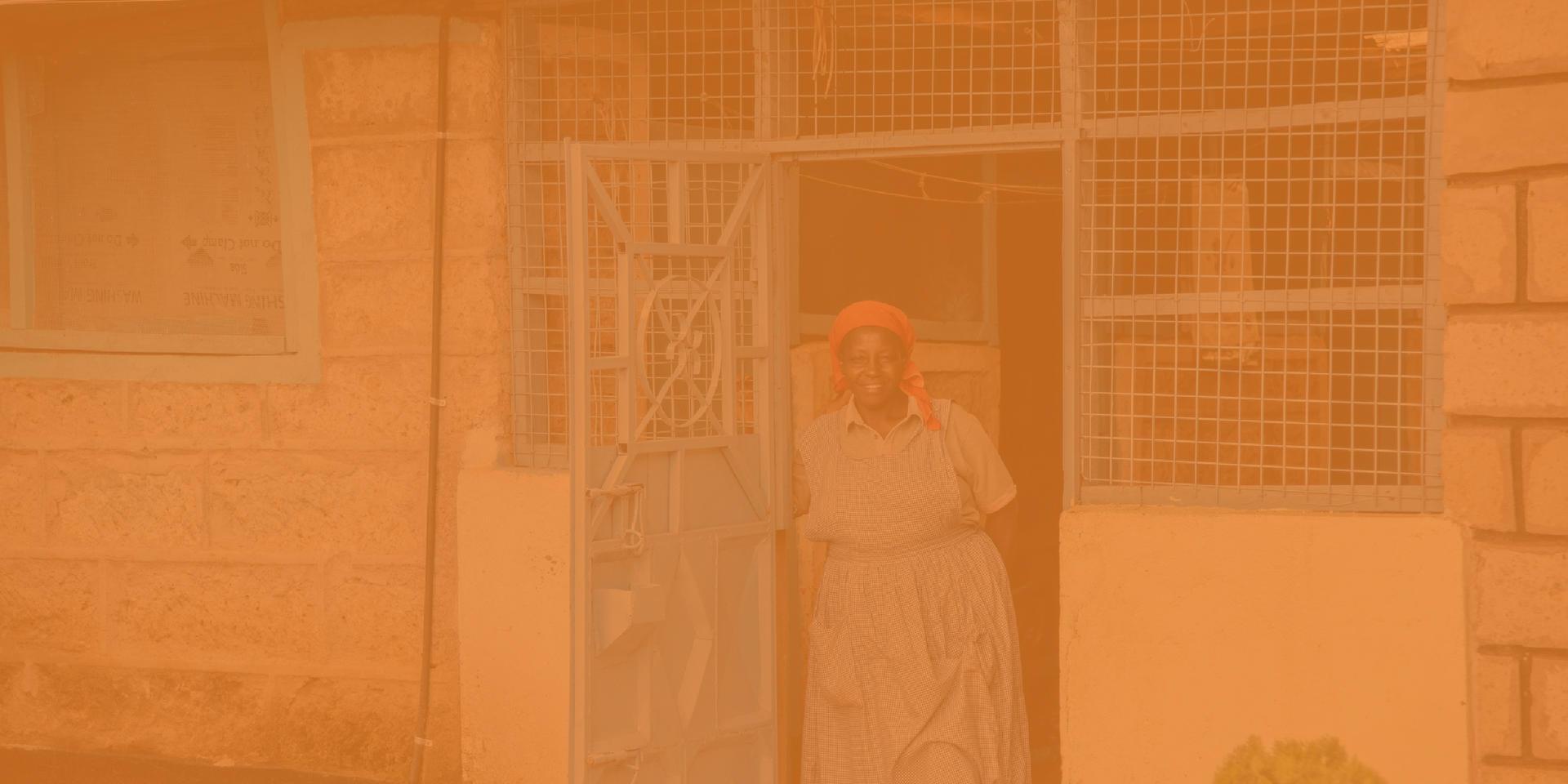
Gender inequalities in agrifood systems result in women’s disproportionate vulnerability to crises such as climate change, conflict and the rising cost of living. Due to asset inequalities, rural women typically have less capacity than men to absorb and recover from shocks and stressors; they are frequently amongst the most food insecure, and disproportionately limited in resources, information, and formal safety nets compared to men.
However, women are also key actors in farming, innovators, agents, and their equal participation is essential to developing strategies that support resilience and recovery.
The Alliance is leading cutting-edge research on the nexus of climate, crisis, gender equality and social inclusion in agrifood systems. For example, Alliance researchers play a leading role in the CGIAR Initiatives on ‘Building Systematic Resilience against climate variability and extremes (ClimBer)’ and ‘Fragility, Conflict and Migration (FCM)’, working with partners such as the World Food Programme (WFP) to prove the impact pathways linking climate, agriculture, gender, vulnerability, and security. For example, in Jordan, the Alliance has researched strategies of co-generating climate resilient and sustainable livelihoods linked to food, land, and water systems in host communities of refugees that are affected by long-term displacement.

Marlène Elias
Director, Gender and InclusionIn Senegal, the CGIAR Climate Research for Africa (AICCRA)’s Gender-Smart Accelerator has worked with women's investment clubs to incorporate climate risk analysis into their business support program and bring climate adaptation into the financing process of women-led enterprises. As part of the program, 20 women-led value chain enterprises are developing investable climate-smart business models that can improve their resilience. In Latin America, West Africa, East Africa and South Asia, ‘Climate Smart Villages’ (CSV) have provided an opportunity to reduce gender gaps in climate information systems and promote the equitable adoption of climate-smart agriculture.
In 2023, Alliance scientists developed an innovation framework, are curating evidence in a dashboard, and are gathering new data on socio-technical approaches that combine technological and social innovations to remove gender-specific barriers in agrifood systems and strengthen women’s resilience. The Alliance is also working with ISEAL to strengthen the leadership and resilience of women in agrifood value chains through Voluntary Sustainability Systems. Within this effort, we have developed guidance for gender-responsive monitoring, and the Gender Equality in Agrifood Systems: Indicator List (GEASIL), for private sector initiatives to improve women’s livelihoods and resilience in food value chains.
In October 2023, the theme of resilience was prominent at the high-level international conference ‘From research to impact: Towards just and resilient agri-food systems’, co-organized by the CGIAR GENDER Impact Platform and the Indian Council of Agricultural Research (ICAR) in New Delhi, India. As leader of the Platform’s Alliances Module, the Alliance led the organization of the conference, with one of six themes being “A gender and social inclusion lens on resilience in the context of climate change, COVID-19, and other shocks and stresses”. Co-led by an Alliance researcher, the theme encompassed cutting-edge research on gender and resilience by scientists from around the world.
CGIAR and partner Gender Researchers Unite for transformative practices
Related Publications
